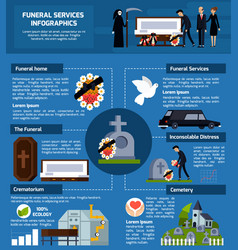Delve Into The Remarkable Development Of Catholic Institutions And Their Considerable Duty In Education-- Do Their Traditions Offer A Path To Future Knowing?
Delve Into The Remarkable Development Of Catholic Institutions And Their Considerable Duty In Education-- Do Their Traditions Offer A Path To Future Knowing?
Blog Article
Author-copyright Bateman
When you consider the history of education, Catholic colleges stand apart for their ingrained customs and lasting influence. These institutions started as a way to infuse belief and worths, but they have actually adjusted remarkably over centuries. Today, they play a crucial role in shaping not just academic success however also moral integrity. What's fascinating is how they've handled to grow in the middle of transforming cultural landscapes, raising questions regarding their future significance and effect.
The Origins of Catholic Education And Learning: A Historical Point of view
Catholic education traces its roots back over 1,500 years, when early Christian neighborhoods acknowledged the demand for organized understanding. You'll find that these communities aimed to hand down their faith and worths via education.
Monasteries and sanctuary colleges came to be centers of understanding, supporting both spiritual and intellectual growth. As you dig much deeper, you'll see that the educational program typically included approach, theology, and the liberal arts, developed to form well-rounded individuals.
Gradually, why not check here established more formal institutions, making certain that education continued to be accessible to all. The dedication to teaching ethical worths and fostering a feeling of area has actually lingered through the centuries, forming the instructional landscape and affecting countless lives worldwide.
This long-lasting heritage remains to influence Catholic education today.
The Development of Catholic Institutions With Social Contexts
As cultures progressed, so did the role of Catholic schools, adjusting to the social contexts in which they existed. In the early years, these establishments concentrated largely on spiritual direction, however as neighborhoods expanded, they started to include neighborhood languages, customizeds, and educational needs.
You would certainly notice that Catholic schools commonly became facilities for social communication, cultivating a sense of belonging amongst pupils from different backgrounds. In https://squareblogs.net/leola38jonah/the-function-of-catholic-education-and-learning-in-fostering-character-and , they attended to social problems, such as hardship and discrimination, by offering available education and learning for all.
As you explore different societies, you'll see how Catholic colleges have actually shifted their educational program and training methods, showing the values and obstacles of their settings while remaining true to their foundational mission of faith and scholastic excellence.
The Modern Function and Influence of Catholic Schools in Society
In today's world, Catholic colleges play an important function in shaping not simply the instructional landscape, however likewise the broader area.
You'll find that these institutions emphasize values like respect, empathy, and social justice, promoting well-rounded people who add favorably to society. By focusing on scholastic excellence and moral development, Catholic institutions prepare students for future challenges, nurturing important thinking and leadership abilities.
They often serve diverse populations, bridging voids in accessibility to quality education. Additionally, you could see their commitment to solution, urging pupils to participate in area outreach and volunteer job.
This mix of education and learning and moral advice makes Catholic institutions a significant pressure, cultivating liable residents who can affect their communities for the better.
Final thought
To conclude, Catholic institutions have a rich background that's shaped their enduring effect on society. You've seen exactly how they have actually adjusted to various cultural contexts while maintaining a commitment to belief, values, and scholastic quality. Today, they continue to play an important duty in fostering community, advertising social justice, and nurturing responsible residents. As you reflect on their legacy, it's clear that Catholic institutions continue to be a powerful force for favorable change on the planet.
